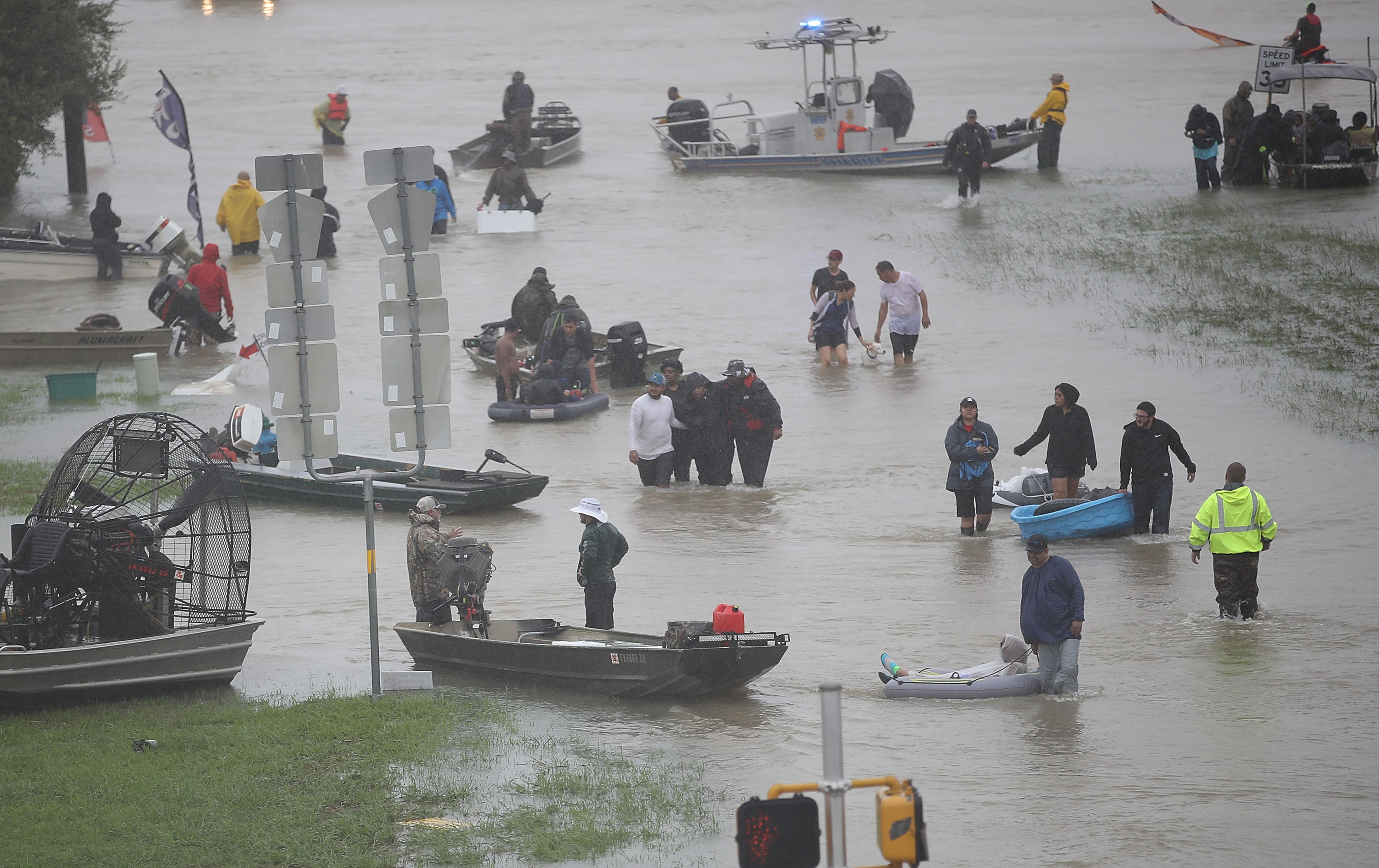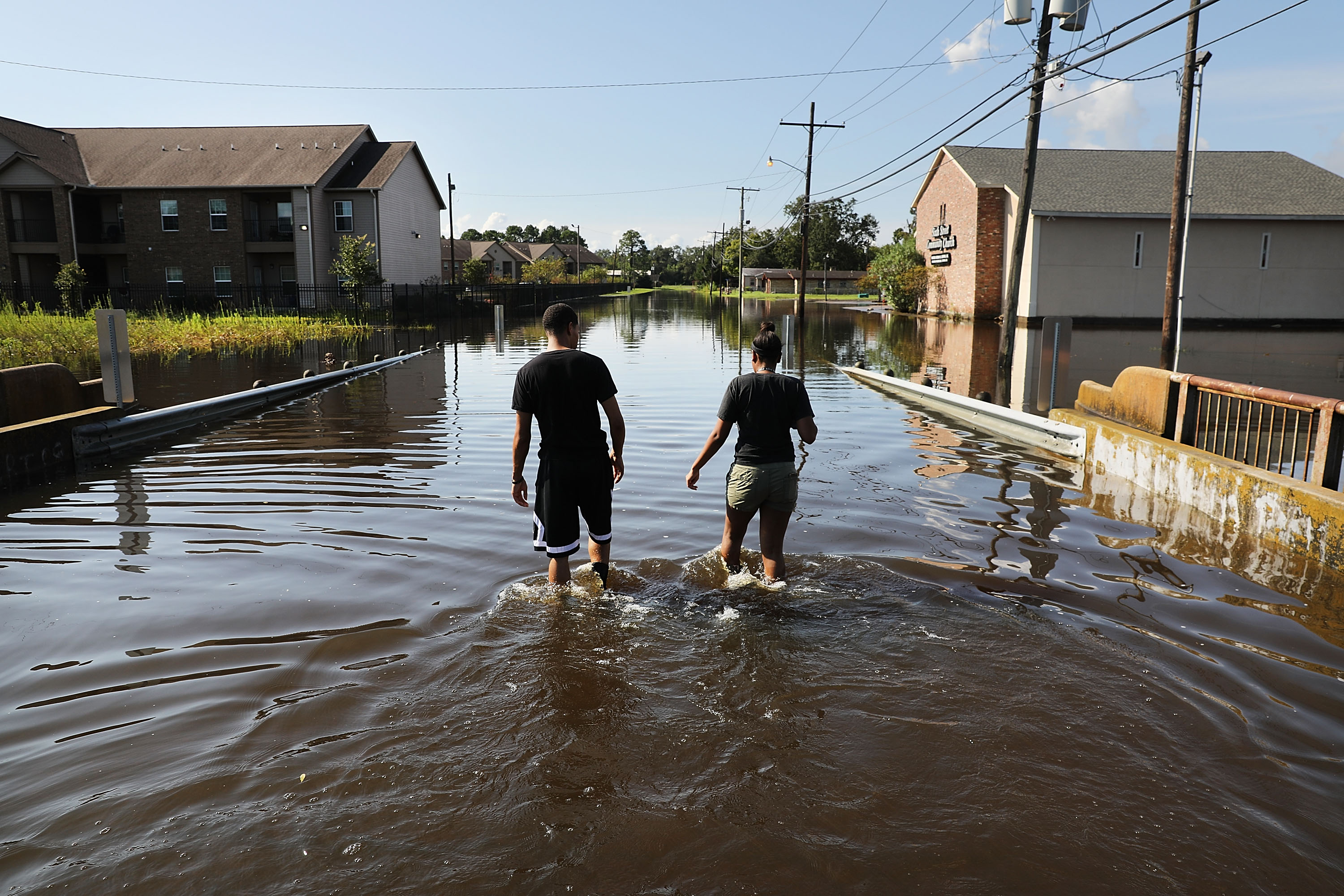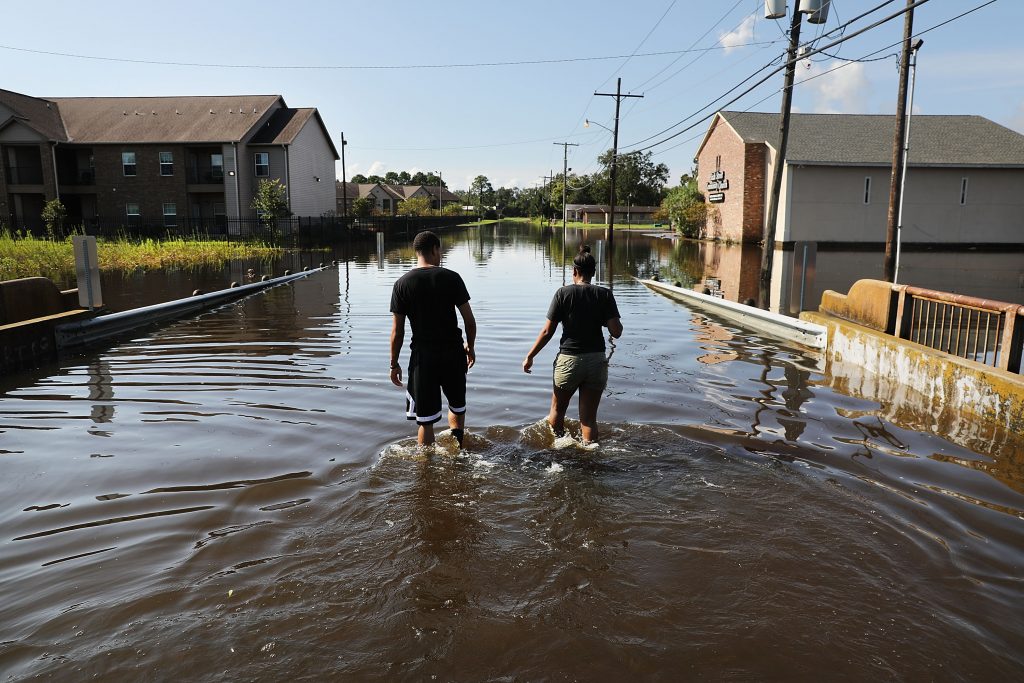For Texas’ estimated 1,650,000 undocumented immigrants, these are trying times. Between the Trump Administration’s hardline stance on immigration and the policies that have made more immigrants a priority for deportation, and the state’s commitment to enacting Senate Bill 4 (SB 4) – a bill a judge recently halted, which is meant to squash sanctuary cities and is likely to lead to the racial profiling of undocumented immigrants – there’s plenty of reason for this community to feel despair. But for the undocumented immigrants living along or near Texas’ Gulf Coast, these fears come at a time when their main concern should be recovering from the devastating Hurricane Harvey, which brought deadly flooding and torrential rain. As they deal with property loss and their families’ safety, they also worry about deportation.
About 575,000 undocumented immigrants call Houston home, making this group the third-largest population of undocumented immigrants in the United States. Already among the most vulnerable, undocumented immigrants felt the amplified effects of the hurricane. The natural disaster has hit them particularly hard, according to USA Today.
For Magdalena, a Salvadoran-born undocumented immigrant, and her family Hurricane Harvey means loss of wages. The household depends on Magdalena’s sister and brother-in-law’s wages from their job at a factory and meatpacking plant. But for a week, they haven’t been able to work. For the already struggling household, this isn’t something they can afford.
The storm also means cramming into a small apartment. After her daughter’s apartment was destroyed and one of the rooms in Magdalena’s home flooded, the apartment, which typically has seven occupants, is now housing 12. Though she could turn to an evacuation site, shelter, or food bank for help at this time – which US Immigration and Customs Enforcement and Border Protection agencies aren’t raiding – she’s afraid to seek help. It’s this kind of climate of fear the federal government has fostered, and the state of Texas has further nurtured.
Since the storm made landfall, immigrant advocate groups have checked in with this community in southeast Houston. After speaking to many people, El Pueblo Primero’s Zakary Rodríguez learned that it’s not just Magdalena and her family who feel afraid. Other undocumented families worry about how they’ll make ends meet, with some saying they have already received threats of eviction notices if they don’t pay their rent on time.

“It is very difficult for the undocumented to raise their voice, especially with the current political climate,” Rodríguez said. “The conditions of some of these apartment complexes that rent to undocumented immigrants is already bad enough. Now these people are being exploited on top of that from building owners that have been profiting off these peoples’ difficult situation.”
Despite the hardships they face, the undocumented community will play an instrumental role in the rebuilding Houston. But, as Reuters reports, this industry, which largely depends on undocumented workers, may see a labor shortage. Fearful of deportation, some construction workers have begun to leave the state. Jay De Leon, who owns a small company in Houston, has seen at least two of his employees leave Texas in recent weeks. In his opinion, Houston will struggle to get back on its feet without the undocumented community.
“The situation that Houston is going through now with the hurricane is going to be the trial by fire for the Republicans and the governor that approved these radical laws,” De Leon told Reuters. “They will need our migrant labor to rebuild the city. I believe that without us it will be impossible.”
Not everyone is willing or skilled enough to do the work. Marek Construction, for example, doesn’t hire undocumented workers. According to the company’s chief executive, Stan Marek, it has for a long time failed to find enough capable US workers.
For the undocumented workers who choose to stay in Texas, it means they will help others recover, as they themselves don’t get the help they need. The Federal Emergency Management Agency (FEMA) provides medical assistance, food, and water to anyone regardless of immigration status. However, long-term aid and money is only open to those who are citizens.
“It is deeply tragic and un-American that so many of those working men and women who will be rebuilding Houston and the rest of the state will be doing so while facing tragedy in their own lives,” Jose Garza, executive director of the Workers Defense Project, told Reuters.
FEMA assistance is available to immigrants who live with at least one family member with legal status. But that doesn’t mean that undocumented immigrants who can claim this money will seek out help. Take Magdalena, for example. She shares a home with two legal residents who can use the much-needed financial assistance to offset the loss of wages. But the family is hesitant to make a claim with FEMA. “They worry that the government will use FEMA aid to help them conduct a government roundup,” Rodríguez told USA Today.
In the midst of so much tragedy, the Trump Administration has also chosen to put an end to the Deferred Action for Childhood Arrivals (DACA) program, which has shielded nearly 800,000 undocumented immigrants from deportation. The Barack Obama-enacted program has given undocumented immigrants brought to the US at a young age the chance to work, go to school, and to come out of the shadows. Yielding to pressure from several attorneys general, Trump chose to end DACA. With one swift move, he dashed the dreams of so many young people.
While the program won’t immediately strip DACA recipients’ status (the government will honor the remainder of the 2-year period and even let some reapply), it jeopardizes the futures of so many. In Texas, there are an estimated 124,300 DACA recipients and as many as 271,000 eligible for the protection. In Harris County – Texas’ most populous county, which is home to Houston – alone, there are approximately 68,000 DACA beneficiaries, according to the Migration Policy Institute. Most of them know no other home than the United States. The government has chosen to vilify them and to take away their security at a time when they need support.




